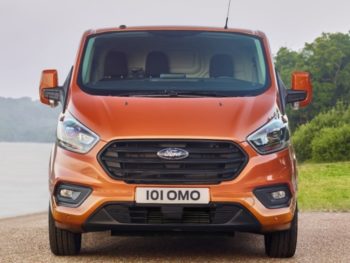UK new van registrations grew 2.4% in 2019 to 365,778 units; the third highest total on record and the result of new Clean Air Zone requirements, including London’s Ultra Low Emission Zone, and continued demand for home deliveries.

Figures from the Society of Motor Manufacturers and Traders (SMMT) show that the introduction of the WLTP cycle failed to impact vehicle demand, with all van segments seeing growth during 2019. Registrations for small vans weighing less than 2.0 tonnes were up 4.4%, medium vans weighing 2.0-2.5 tonnes rose 10.5% and larger vans weighing 2.5-3.5 tonnes increased 1.2%. Demand for new pick-ups and 4x4s, however, fell, down 1.0% and 9.7% respectively but the combined loss represented just 733 units.
The highest seller for the year was the Ford Transit Custom, with 52,512 units registered, followed by the Ford Transit in second (26,237 units) and Mercedes-Benz Sprinter (25,862).
December also brought a positive end to the year with monthly registrations returning to growth, posting a 7.8% rise.
Mike Hawes, SMMT chief executive, welcomed the rise in 2019 registrations but said this upward trend must continue if the UK is to address environmental concerns.
“The quicker these new vehicles become commonplace, the quicker their positive impact on air quality and climate change will be felt,” he continued. “Manufacturers will continue to invest in new, cleaner technologies but, ultimately, it is businesses that will determine the pace of change. Business positivity is essential to give companies the confidence to invest in their fleets.”
Russell Adams, commercial vehicle manager at Lex Autolease, said that as EV demand continues to grow, and with the promise of increased supply from leading OEMs, it will be interesting to see whether electric vans will challenge diesel’s dominance of the motorways for the first time in 2020.
He continued: “Diesel remains the most appropriate fuel type for higher-mileage users, who are upgrading to Euro 6 to keep emissions to a minimum, and to avoid city centre access charges. Many fleets are also starting to look at electric vans, but must first identify where they can be integrated seamlessly into business operations.
“Key practical considerations include vehicle range and access to charging facilities, which tend to mean that for the time being at least, electric vans are best suited to lower-mileage drivers operating in urban areas. It’s also important for fleets to ensure their drivers buy-into electric, to minimise downtime and maximise the cost and environmental benefits.”

